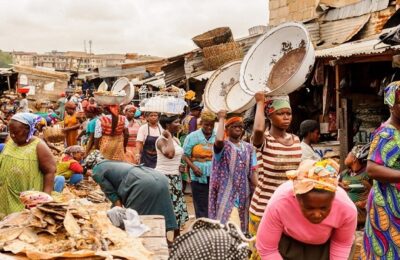Creativity or innovation redistributes wealth, power and influence in societies.
Page 182 of the book “Why nations failed”, written by Daron Acemoglu and James A. Robinson tells the story of William Lee, the man who first invented the knitting machine. Unfortunately, when he presented his machinery piece to the then Queen, she replied so” Thou aimest high, Master Lee. Consider thou what the invention could do to my poor subjects. It would assuredly bring them ruin by depriving them of employment, thus making them beggers”.
Most times, the elite, especially when their political powers is threatened, form a more formidable barrier to innovation.
Nigeria reflects a stark example of oppression by the powers that be against the masses.Nigerian leaders resembles corrupt pigs in George Orwell’s animal farm. Though the pigs Lord over the kingdom, they plundered without restraint all the available resources at the detriment of the wider community. They cared only for self and no more.
The recent dispute over autonomy between the state and local government reflects the many lapses of “Nigerianess” i.e a state of repression. Countless times, sermons from the Aso Villa goes thus, “The youths are ours to empower. The future is theirs and in all that we do, we must, without backing down ensure to empower…”
Ironical, it appears clearly that until the arteries and veins of our rulers are filled to brim with oil incomes and tax earnings, everyone else can hold on to the slogan “let the poor breathe”.
My opinion after listening to Senator Ali Ndume claims that the president is not in tune with nominal issues within the country is simply “Na lie”.
Innovators like Dr. Ngozi Iweala and the late Prof. Dora Akinyuli proposed solutions that could have improved the lives of Nigerians during the Obasanjo and Jonathan administrations. However, their efforts were met with fierce resistance. This suggests that Nigeria’s challenges are not due to a lack of knowledge or solutions, but rather a deliberate attempt to undermine progress, making sabotage the real problem.”
Again, the country posture suggests that flowering ideas of betterment is akin signing up for suicide.
Please do not think that creative innovation is a prerogative of the elites. I recall a personal experience while travelling to Igbariam, where a makeshift bridge stood. Motorists were not allowed to use the bridge except they pay a sum to some random custodian. Months later, the government began building a new, improved bridge nearby. Unfortunately, the project stalled due to the opposition from those who controlled the makeshift bridge, fearing the loss of income, power, and influence. This anecdote highlights how self-interest can hinder progress, and how crucial it is to address such obstacles to foster meaningful growth.
Building a nation requires a transformation that involves dismantling the old to pave the way for the new. However, this process is hindered when leaders fail to address the redistribution of wealth and power.
I am also reminded that without strong institutions, failure becomes a norm. We remain trapped in a cycle of inequality and disadvantage, unable to move forward.
– Olayinka Kayode Kingsley writes from Abeokuta, Ogun State.




